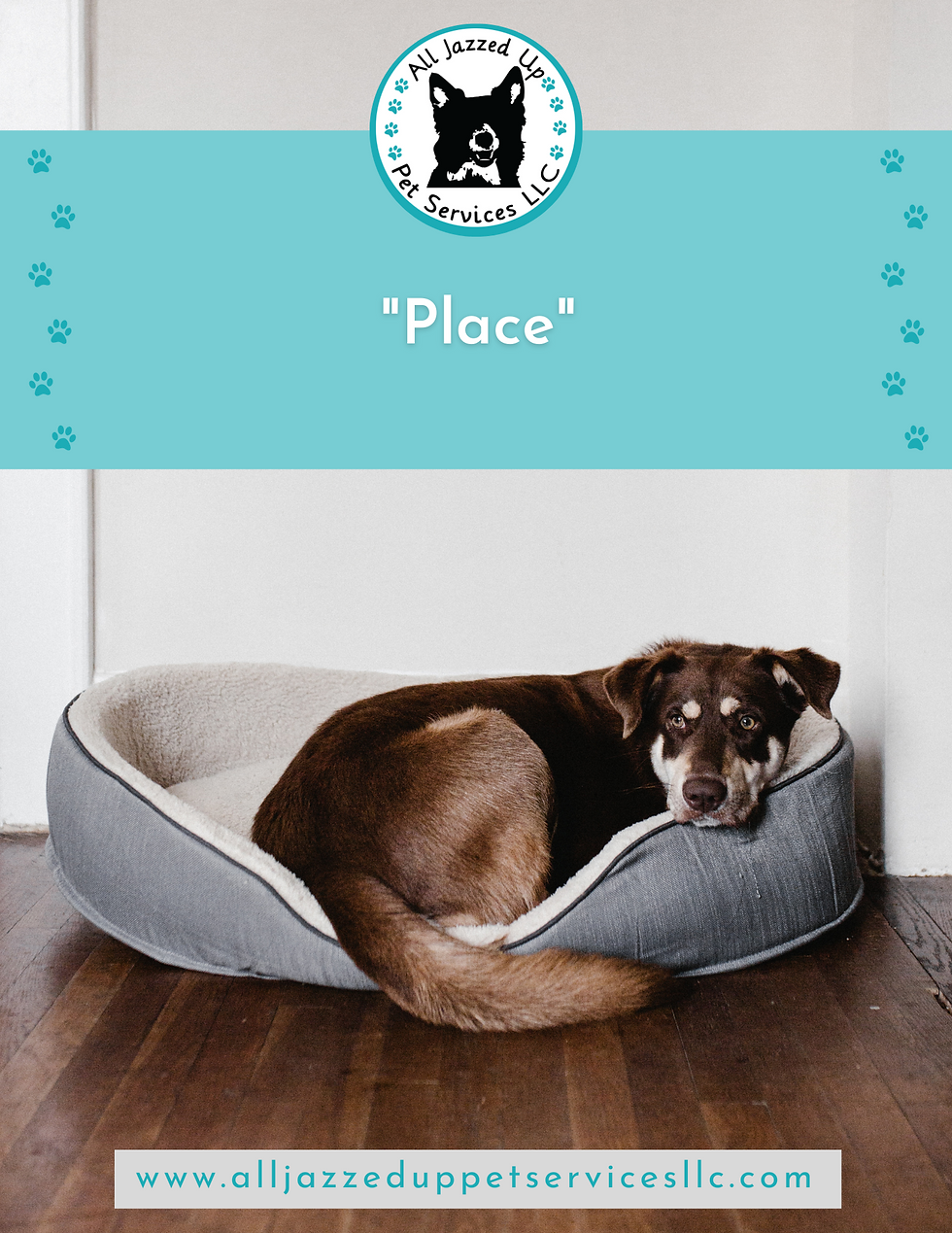Puppy Socialization
- Kathlyn Lawrence of All Jazzed Up Pet Services LLC
- Jan 26, 2021
- 3 min read
Updated: Oct 8, 2023
Puppies between 6 weeks and 16 weeks (give or take, every dog is different) go through a development change. During this time, their brains are more inclined to accepting new experiences as they act as sponges to absorb information from the world around them. This is why it is often said it is easier to train puppies during this age.
The most important thing for puppies to learn during this age is to socialize. What your puppy encounters during this critical time will shape their character, temperament, and behavior for the rest of her life. Socialization gives dogs a bigger world, gives dogs a bigger brain (literally), ensures bonding with humans and creates an overall healthier dog.

The term socialize often is misleading in dog training. People think that their puppy need to meet people and other dogs, but it is so much more than that....
Socialization is defined as "the process of learning to behave in a way that is acceptable to society." Meaning proper socialization is the first step in having a well adjusted and clam dog. It is not meeting every dog they see. Socialization is simply introducing the puppy to the world.

As a rule of thumb, puppies should...
· Encounter 12 different surfaces
· Encounter 12 different objects
· Encounter 12 different locations
· Encounter 12 different people
· Encounter 12 different kids
· Encounter 12 different animals
· Encounter 12 different noises
· Encounter 12 different fast-moving objects
· Encounter 12 different challenges
· Explored 12 different locations with a leash & collar
· Encounter 12 different handling exercises each week
· Eat from 12 different shaped containers
· Eat in 12 different location
· Socialize with 12 different balanced healthy and vaccinated dogs/puppies
· Been left alone safely in a crate away from family and other animals (5-45 mins) 12 times a week
· Been left alone safely in a crate near family members (5-45 mins) 12 times a week
...by the age of 16 week
Remember, a puppy does not have to interact closely with every person or animal they see. Interaction can be done by observing. In the long run, this will help teach the puppy that they do not have to "say hi" to every person on the street or every dog they pass. When socializing your puppy, I recommend to say a phase that will be used to let the puppy know you give them permission to check out the object/person/animal. I like to use “Say Hi”.
If the puppy doesn’t seem interested in checking out the object/person/animal make an effort to encourage them to check it out. If that doesn’t work, take a step back and have the object/person/animal nearby while you are playing with your puppy. Introduce this object/person/animal again later, but a little closer. Keep repeating this step daily until your puppy is comfortable with the object/person/animal. Take your time in making this a positive experience for your puppy.
Once dogs hit puberty, typically around 6 months of age, your dog will begin to look at life differently. Your dog will rely on their previous learning experiences to help them respond to situations they encounter in life. As a dog owner you should encourage and supervise as many quality social experiences as possible.
Puppies that encounter daily positive experiences in their first 16 weeks will be much more balanced and will cope with experiences later in life. Puppies who have had little or no socialization or bad experiences, are more likely to show aggression, fear, avoidances, or submissive urination later in life. Such behavior problems are the number one reason why dogs are surrendered to a shelter or rescue. Behavioral issues are the number one cause of death in dogs under that age of three. Puppies who were born during the Covid-19 Pandemic are more at risk for showing these signs when they mature. Do yourself and your dog a favor and take the precaution of socializing your puppy to as much as you can during this critical time in their life. Use the rule of 12 with our Puppy Socialization worksheet (below) and our Puppy Socialization Items to help raise a balance puppy.
Even though socialization is important for puppies during this developmental period, please keep in mind that your puppy does not have all of its shots yet. So be smart about it!...Carry the puppy, use a cart or puppy stroller when out, etc.
We follow the recommendation of the American Veterinary Society of Animal Behavior and Robert K. Anderson DVM. As always, if you have any questions regarding this, please reach out to your Veterinarian.

Kathlyn Lawrence of All Jazzed Up Pet Services LLC is a Certified Professional Trainer (CPT) with years of experience training dogs and working with animals. For more information on our Pet Services please visit our website.



.jpg)
Comments